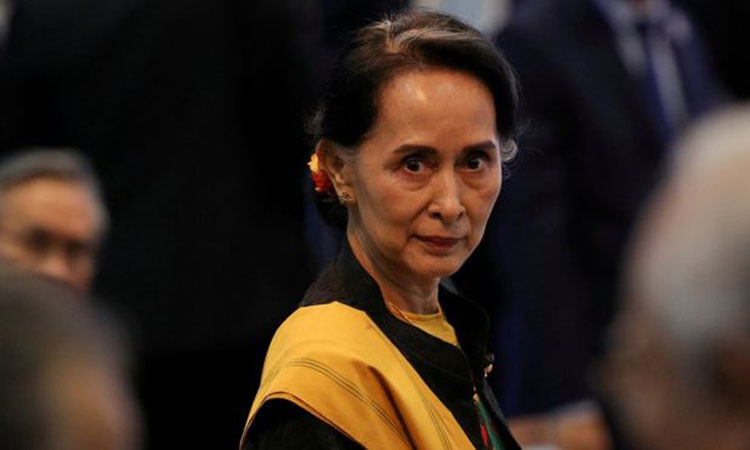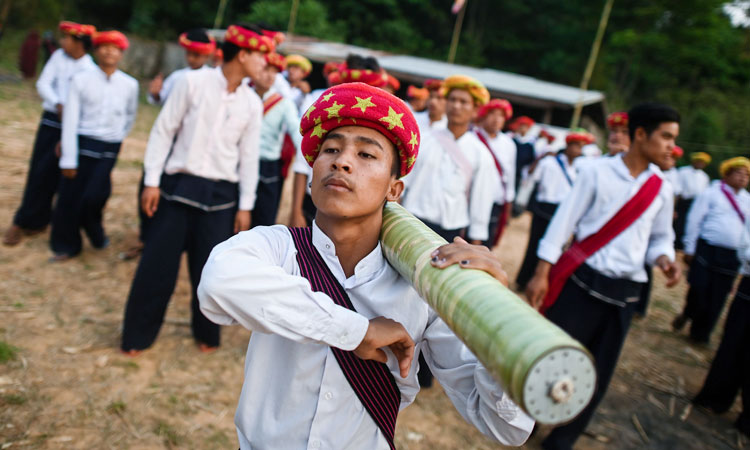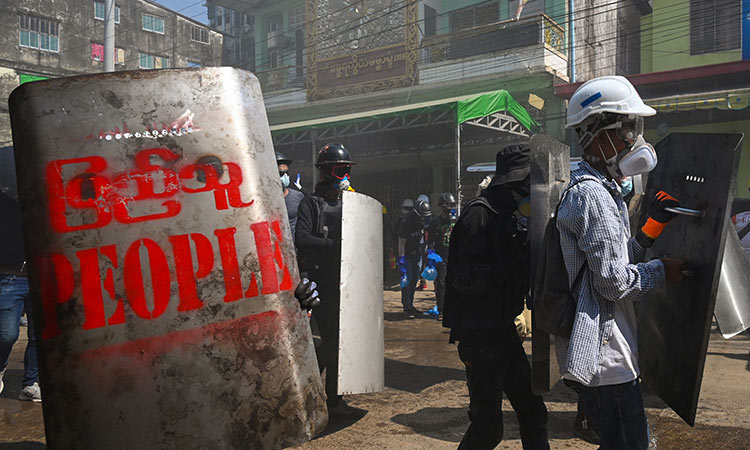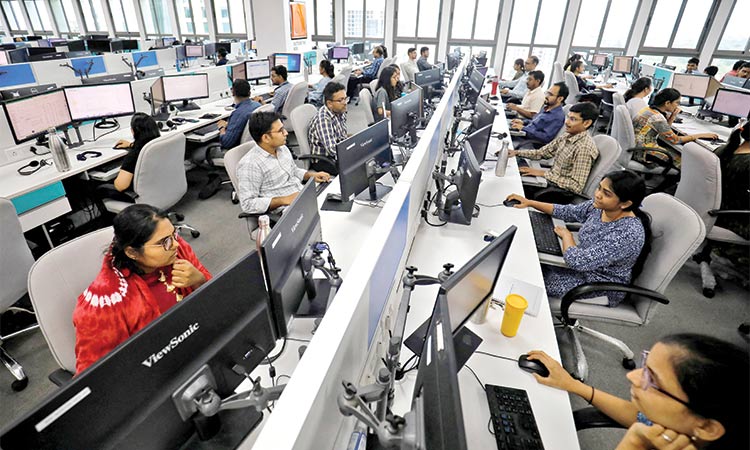The Myanmar coup is more proof that democracy is under threat — here’s what the free world must do

Aung San Suu Kyi. File
Democracy and freedom are increasingly on the backfoot around the world. This year began with the arrest of 55 pro-democracy politicians and activists in Hong Kong, for the simple “crime” of holding a primary election to choose their candidates for the legislature. In Thailand and Belarus we also see protests for democracy. And then last week we saw a coup in Myanmar, overthrowing the democratically-elected civilian-led government of Aung San Suu Kyi and provoking the largest demonstrations in the country in over 14 years.
In all of this, one lesson is clear: Democrats need to stand together and the free world must unify to take action.
Myanmar’s coup is particularly heartbreaking, reversing a decade of liberalisation. When Suu Kyi was released from house arrest just over 10 years ago, few expected the ruling military regime to go much further. But over the subsequent years political prisoners were released, ceasefires were agreed with many of the country’s ethnic armed groups, and space opened up for civil society and media.
In 2015, the country’s first genuinely free and credible elections in a quarter of a century were held, and Suu Kyi’s National League for Democracy (NLD) won an overwhelming victory. A transition to her government took place in which she assumed the role of de facto head of government, while the military — under the constitution which they wrote — kept control of three key ministries: home affairs, border affairs and defence. The army also controlled its own budget, and a quarter of the seats in parliament. This accommodation between democrats and soldiers was fragile, and in the past few years led to more repression. It left Suu Kyi’s international reputation tarnished as she is alleged to have covered for the army. But it had at least set Myanmar on a pathway to democracy — or so we hoped. The coup leaves that hope in tatters and represents not simply an attack on one person or her government, but on democracy itself. In last November’s elections, Suu Kyi’s NLD clearly won a second term, and there is no evidence to support the army’s claims of voter fraud. Indeed, for a military that has defrauded the people for decades, such claims are ridiculous.
The response of the international community has been mixed. We have heard strong condemnation from the US president Joe Biden, British prime minister Boris Johnson, the UN secretary-general Antonio Guterres and European leaders, but Thailand dismisses the coup as its neighbour’s internal affair and China, absurdly, calls it “a major cabinet reshuffle.”
Cabinet reshuffles entail sackings and resignations, not the dismissal and arrest of all government ministers, along with civil society activists who have little to do with Suu Kyi. China’s role is particularly concerning. Last month, Myanmar’s coup leader, the army’s commander-in-chief General Min Aung Hlaing, met Chinese foreign minister Wang Yi and is believed to have made his claim of electoral fraud. While we of course don’t know China’s response, it seems unlikely that the general would have gone ahead with the coup without being confident of Beijing’s backing. The free world must make it clear that human rights, the rule of law and democracy are universal values and as such are issues of legitimate international concern. They are not “internal matters” of sovereignty, but fundamental pillars of the international rules-based order. When democracy is overturned in the way it has been in Myanmar, and when freedom is dismantled as it has been in Hong Kong, the international community has a responsibility to respond.
For that reason, the democratic world should unite not only in condemnation of Myanmar’s coup, but inaction by imposing tough, targeted sanctions — not against the people of Myanmar, but against its military and their enterprises and assets. And it should find ways to counter China’s growing influence, not only by punitive measures against human rights abusers but also by investing in soft power and technology to support courageous fighters for freedom on the frontlines.
That could include enhancing ways to circumvent China’s “Great Firewall of Internet” censorship, which it is expanding to other dictatorships. For activists in Myanmar and Hong Kong alike, the internet is a lifeline to the outside world, but that lifeline is in increasing danger of being cut.
All this makes President Biden’s proposed summit of democracies, and Boris Johnson’s much-vaunted creation of a “D10” group of democracies, all the more timely. Freedom-loving countries must wake up to the fact that when a fledgling democracy is overturned in a coup as in Myanmar, and promised liberties and autonomy trampled on in breach of an international treaty as in Hong Kong, it is a danger not only to the people on the ground but to the international rules-based order and to freedom itself.







